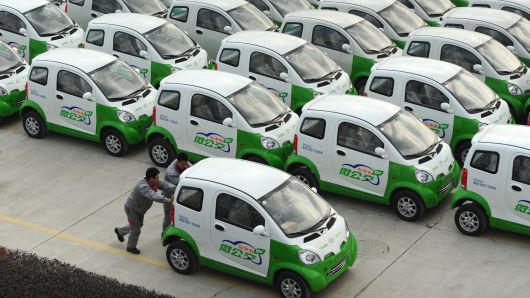New Delhi: With the automobile industry growing through the longest sales slump, made worse by coronavirus pandemic, auto industry body SIAM President Rajan Wadhera Tuesday said he does not see any case for investment in the auto sector at present.
Among the casualties of the current situation will be electric vehicles, where companies are no longer in a position to invest in the new technology and it would need government support for India not to miss the EV revolution, he added.
Speaking to reporters via video conference, Wadhera said after the lockdown relaxations automobile manufacturers have slowly started production but capacity utilisation remained very low.
“It will take another three to four years to reach the peak level of 2018. So right now there is enough capacity in the sector and hence no investment is needed there. Moreover, the auto industry has invested heavily for the transition to BS-VI emission norms in a very short span of three years,” Wadhera said.
He further said this year the auto sector is looking at a decline of 26-45 per cent depending on the vehicle category.
“Coupled with that of last year, we are looking at a decline of 50 per cent in two years. When the demand is half, I don’t see any case for investment in the sector,” Wadhera said responding to a query on how the slowdown and COVID-19 will impact investments.
When asked how the EV story will pan out in India due to the current circumstances and if OEM (original equipment manufacturer) will rethink their plans for the same, he said: “You can’t keep on borrowing money and investing. Even if you want to, if you do not have revenue you cannot invest.”
Admitting that EV plans have taken a back seat for many manufacturers, he said it is not “affordable” for the industry to invest in it at the moment.
While India has been promoting EV, Wadhera said there is a need for a dialogue with the government for proper long term planning and for providing support to the industry and creating the infrastructure so that the country does not miss out on the “EV bus”.
On self-reliance, Wadhera said around 70 per cent of the components have been localised but due to the migration to BS-VI emission norms imports of certain parts have increased in the range of 1-6 per cent and these will continue till the time domestic components manufacturers develop expertise and scale for the same.
Wadhera said in future any new rules for the auto sector must be planned in such a manner that “regulations and localisation go hand in hand”.
On a query on whether there have been job losses in the auto sector due to COVID-19, he said as of now it has not happened yet but said in future it cannot be ruled out.
When the industry continues to suffer slump, manufacturers will obviously take various cost rationalisation programmes and employee cost is among the most significant ones, he added.
On sales of BS-IV vehicles, Wadhera said the matter is sub judice but the auto industry has requested the Supreme Court to allow registrations of all such vehicles sold till March 31.
(PTI)
